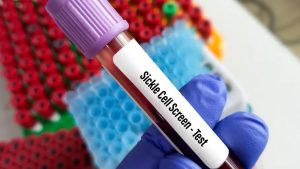Bruce Willis has been diagnosed with Frontotemporal Dementia, his wife Emma Heming Willis revealed on Thursday. Heming Willis shared a photo of her husband on Instagram, saying that the 67-year-old actor’s condition has worsened since the family revealed his aphasia diagnosis last year. Bruce married Emma in March 2009 and the couple has two daughters. Willis’ aphasia diagnosis was shared in March 2022, along with the news that he would be retiring from acting.
What is Frontotemporal Dementia?
Frontotemporal Dementia refers to a group of brain disorders that primarily affect the frontal and temporal lobes of the brain. These areas of the brain are generally linked to personality, behavior, and language.
Several different diseases cause frontotemporal degeneration. The two most prominent are a group of brain disorders involving the protein tau and a group of brain disorders involving the protein called TDP43. For unknown reasons, these two groups have a preference for the frontal and temporal lobes that cause dementia.
Also Read | What is Idiopathic Pulmonary Fibrosis? Symptoms, causes and prevention
Dementia mostly affects people over 65, but frontotemporal dementia tends to start at a younger age. Most cases are found in people aged 45-65, however, it can also affect younger or older people.
Signs of Frontotemporal Dementia can include:
1) Personality and behavior changes such as increasingly inappropriate behavior, loss of empathy, lack of judgment, loss of inhibition, lack of interest, neglecting personal hygiene, overeating, or loss of motivation.
Also Read | What is Myasthenia Gravis? Causes, symptoms and treatment
2) Language problems such as speaking slowly, struggling to make the right sounds when saying a word, using words incorrectly, or getting words in the wrong order.
3) Problems with mental abilities including lack of concentration or struggling with planning or organization.
4) Memory problems only tend to occur later on, unlike more common forms of dementia such as Alzheimer’s disease.
5) There may also be some physical issues, such as slow or stiff movements, loss of bladder or bowel control, muscle weakness, or difficulty swallowing.
Treatment
According to Hopkinsmedicine.org, there is currently no treatment available to cure or slow the progression of FTD, but healthcare provides medicine to treat symptoms. Antidepressants may help control anxiety and obsessive-compulsive behaviors and other symptoms. Prescription sleeping aids can help ease insomnia and other sleep issues.
Also Read | Who is Neal Mohan, YouTube’s new CEO, replacing Susan Wojcicki?
Speech and language pathologists and physical and occupational therapists can help with the adjustment to some of the changes caused by Frontotemporal Dementia.







